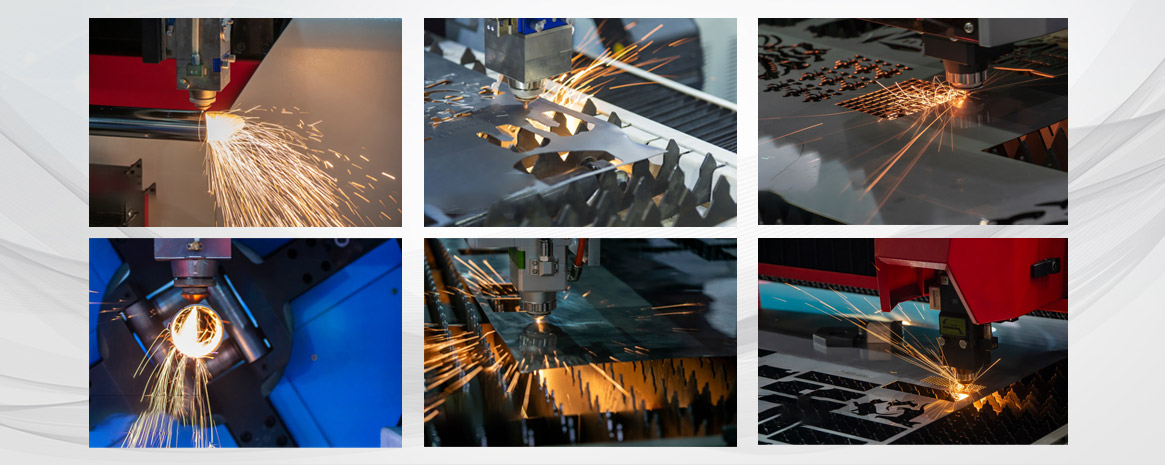Many customers will report that some problems are prone to occur when cutting some high-reflectivity metal materials, which will be more difficult to deal with, because the lens system may be damaged during laser cutting, so it is necessary to perform reflective laser cutting. Be extra careful. Why is there a phenomenon that laser cutting is difficult? Let's analyze what is the working principle of laser cutting machine?
The working principle of CO2 laser cutting machine
The working principle of the CO2
laser cutting machine is that the heat of the laser beam is fully absorbed by the material, and the reflective properties of the metal will cause the laser beam to be repelled. In this case, the reverse laser beam will enter through the head of the lens and mirror system of the
laser cutting machine, causing damage to the machine. In order to prevent the reflection of the laser beam, several measures need to be taken. For example, covering the reflective metal with a coating that absorbs the laser beam, this cutting method will not affect the quality and accuracy of the cutting, and the laser cutter is not damaged.
Application of fiber cutting technology
Most modern
laser cutting machines are also equipped with a self-protection system. In the case of laser beam reflection, the system will shut down the laser cutting machine to prevent damage to the lens. The whole system works according to the principle of radiation measurement, that is, it is monitored during cutting. Moreover, the advancement of technology has developed a laser cutting machine that can resist this situation, which is a fiber laser. Fiber laser technology is one of the latest cutting technologies, and its performance is far superior to carbon dioxide lasers.
Fiber lasers use fibers that guide the laser beam instead of using a complicated mirror system. Using a fiber laser cutting machine instead of carbon dioxide to cut reflective materials is the fastest and most cost-effective alternative.

Fiber laser: It is the core component of
fiber laser cutting machine. Compared with other types of lasers, fiber laser has the advantages of higher efficiency, longer service life, less maintenance, and lower cost.
Cutting head: The cutting head of the laser cutting machine is a laser output device, which consists of a nozzle, a focus lens and a focus tracking system. The cutting head of the laser cutting machine will travel according to the set cutting track, but the height of the laser cutting head needs to be adjusted and controlled under different materials, different thicknesses, and different cutting methods.
AKJ1530FR uses Raytool cutting head, Swiss Raytools brand auto-focus cutting head, suitable for medium and high power fiber lasers in industrial applications. Imported closed-loop motor is used to perforate and cut various material thicknesses at high speed.
Servo motor: Servo motor refers to the engine that controls the operation of mechanical components in the servo system. The servo motor can control the speed and position accuracy very accurately. It can convert the voltage signal into torque and speed to drive the control object. The high-quality servo motor can effectively ensure the cutting accuracy, positioning speed and repeat positioning accuracy of the laser cutting machine. Japan's Yaskawa servo motor and driver.
AKJ1530FR adopts Yaskawa servo motor with the highest amplifier response in the same industry, which greatly shortens the setting time, realizes high-speed acceleration and deceleration, and responds quickly. It has the function of resonance suppression to ensure the smooth operation of the machine at high speed. Strong anti-interference ability and strong anti-overload ability.

At present, the
laser cutting process has attracted much attention in the metal industry. Many manufacturers have bid farewell to traditional CNC punching machines. The principle of laser processing is to irradiate the surface of the material with a high-energy beam generated by a laser to quickly melt the metal material, and move the beam to make the material Melt linearly to achieve the purpose of cutting.




